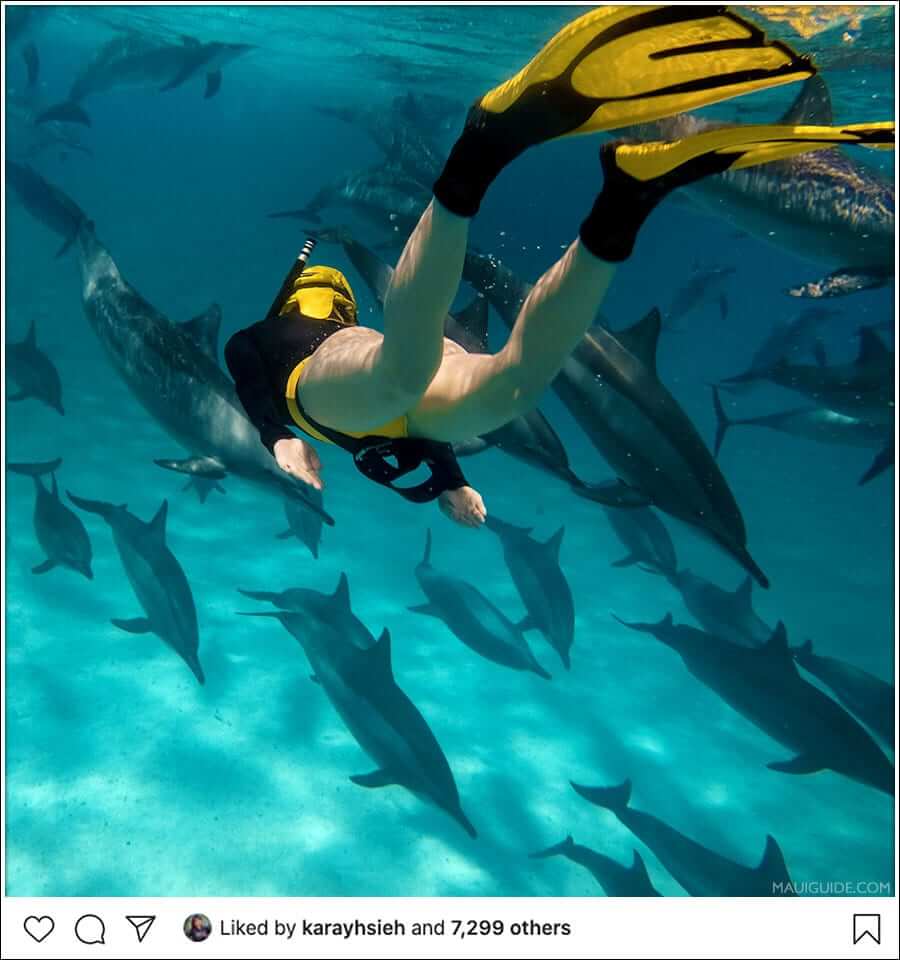A Visual Guide To Common Humpback Whale Behavior
There is nothing more exciting than seeing a 30-ton whale throwing itself out of the ocean like a spinner dolphin on one of our whale watches. Luckil...

Unlike diving, where things like water salinity levels, hydrogen sulfide and water temperature gradients can deeply affect visibility, when snorkeling around Maui, most of the external factors that affect visibility are easy to spot. If you notice the water seems unusually murky, then it's probably not a good time to snorkel. Here are five easy ways to tell if visibility is going to be clear when you snorkel.
Waves
A wavy day means that sediments on the ocean shore will be stirring. This is why snorkeling where there's an off-shore reef blocking waves is advantageous. But, if you're in an area without a blocking reef, one way to quickly check the wave conditions the night before you're planning on snorkeling is with a surf app like Surfline or Magic Seaweed, or google "surf forecast at ..." (fill in the beach you want to visit). If you see the waves are going to be big (over 4 feet) for surfers in your general area, it will most likely mean the area you're snorkeling will be wavier than usual. Anything less than four feet and you should be in the clear (pardon the pun.)
RELATED: Best places to snorkel on Maui
Wind
The wind can wreak havoc on visibility. On Maui, the best time to get in the water is early in the morning. Not too early, as you want the sun to illuminate the water, but ideally, you'll be in and out of the water before the tradewinds kick in. The deeper the water you're going to be snorkeling in, the less wind becomes an issue. This is why a snorkel trip from a boat, like excursions to Lana'i are pretty much wind-proof.
Rain
It doesn't happen often, but when a big, steady rainstorm hits, it can definitely affect water clarity. Unless the water is super shallow, the issue is not that the rain kicks up sediments, it's more because of the run-off from all the water coming down and entering the ocean. After big rains, you may hear there's a "brown water advisory." If a brown water advisory hits your beach, you should stay out of the ocean. Not only will the water be murky, but the brown water may contain harmful pathogens and other pollutants that can cause illness.
Sunshine
On the other end of spectrum, sunshine also affects clarity... in a good way! Just like on land, the brighter it is, the easier it is to see. Even on cloudy days, it's never that dark during daytime hours here, but still, a little sun doesn't hurt your visibility. Think of it as a spotlight, illuminating the fish around you.
RELATED: Common fish you'll see when snorkeling Maui
You
When a snorkeler kicks up the sand or clay at the bottom of ocean, those particles will then cause the water to become murky. That seems obvious. To avoid this, if you're near the ocean floor, try swimming with just your hands. The force of your flippers is often enough to stir up the ground.
Please remember when snorkeling to respect your environment. Just as you don't want anyone to stand on your face, never stand on coral. If possible, keep those legs flapping and try to stay off the ground. Mahalo!
There is nothing more exciting than seeing a 30-ton whale throwing itself out of the ocean like a spinner dolphin on one of our whale watches. Luckil...
When you join us on a whale watch tour on Maui, breaching is one of the common actions you're likely to see. Breaching is when a whale throws its ent...
Seeing whales on a whale watch tour is awesome. No doubt about that. But do you know what else is awesome? Seeing dolphins! But is it legal to swim wi...
